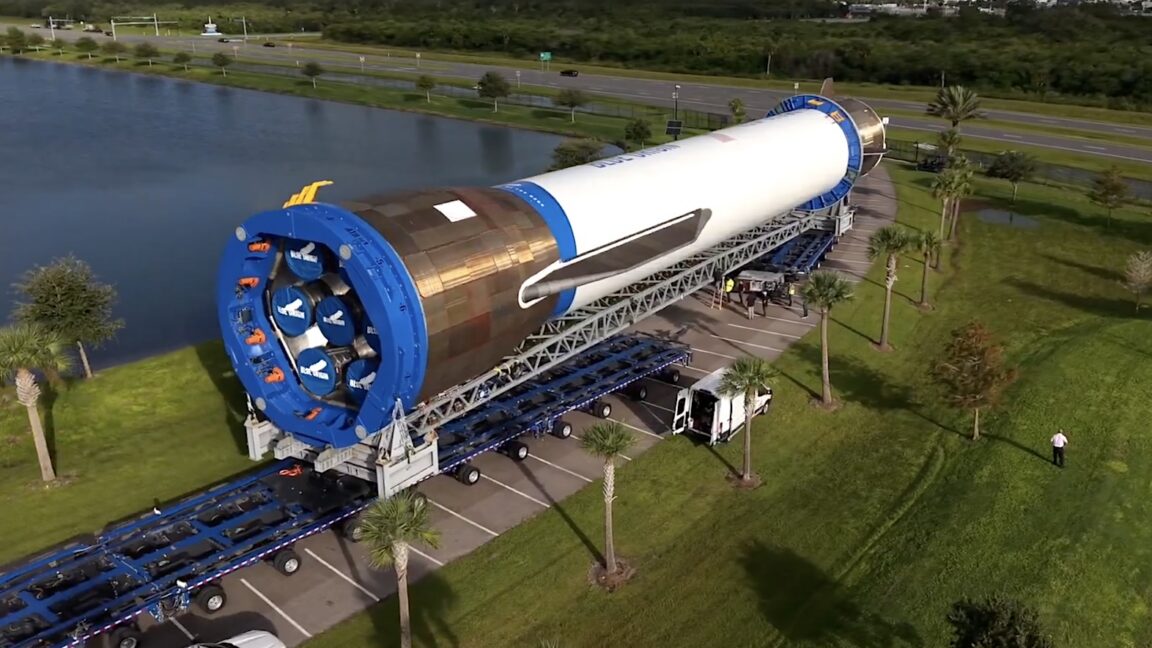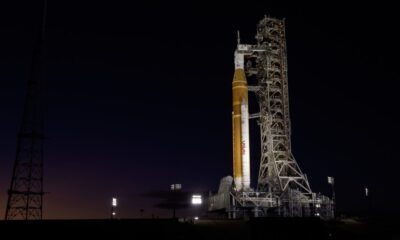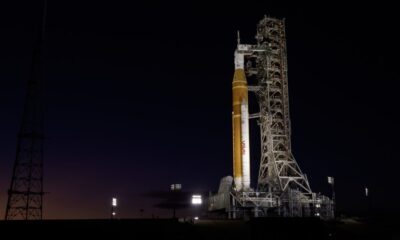Science
Blue Origin Expands Operations as Space Industry Thrives Amid Shutdown

The space industry remains largely unaffected by the ongoing federal government shutdown, with significant developments from major players including Blue Origin and NASA. Military operations continue, and preparations for the upcoming Artemis II mission, set to orbit the Moon, are progressing at Kennedy Space Center in Florida. As of now, the International Space Station operates with a crew of seven in low-Earth orbit, while NASA’s various spacecraft remain active in their missions throughout the cosmos.
While the shutdown has minimal impact on commercial space activities, it is crucial to recognize the challenges faced by troops and federal employees who may miss paychecks if political leaders fail to resolve the situation soon.
Space Debris and Environmental Concerns
New research highlights the growing issue of space debris, with a recent list identifying the top 50 most concerning objects in low-Earth orbit. According to Darren McKnight, lead author of a paper presented at the International Astronautical Congress in Sydney, a staggering 76% of these objects were launched before 2000, primarily consisting of defunct rockets.
The report indicates that since January 1, 2024, China has abandoned 21 of the 26 rocket bodies left in low-Earth orbit, which are projected to remain there for over 25 years. Russia and the Soviet Union lead the list with a total of 34 objects, while the United States has three. The potential for collisions in space raises concerns about the catastrophic consequences of Kessler Syndrome, where even small impacts can create a cascade of debris.
Blue Origin and New Ventures
In a significant move, Blue Origin, founded by Jeff Bezos, successfully conducted its sixth crewed flight of the New Shepard rocket this year. This mission, which launched on a Wednesday, marked the 36th flight for the suborbital vehicle. The passengers included prominent figures such as Jeff Elgin and Danna Karagussova. Blue Origin has now flown 86 people into space, showcasing its dominance in the space tourism sector while its main competitor, Virgin Galactic, remains grounded.
Additionally, Blue Origin has secured a $78.2 million contract from the US Space Force to construct a new payload processing facility at Cape Canaveral Space Force Station. This facility will support up to 16 missions per year, with half of that capacity allocated to the Space Force. The site will facilitate important pre-launch activities, including battery charging and satellite fueling, in a state-of-the-art environment.
NASA is also investing in the future of space exploration, awarding the Ad Astra Rocket Company a $4 million contract for its Variable Specific Impulse Magnetoplasma Rocket (VASIMR) project. Founded by former NASA astronaut Franklin Chang-Diaz, this innovative engine aims to reduce travel time to Mars to just 45 days using a nuclear power source. However, the development has faced challenges, including a critical ground test that has yet to be conducted.
Future Launches and Developments
Looking ahead, several companies are preparing for upcoming launches. Gilmour Space Technologies, an Australian startup, aims to return to the launch pad next year following a failed orbital flight attempt earlier this summer. CEO Adam Gilmour expressed confidence in the company’s future ambitions, stating, “We are well capitalized. We are going to be launching again next year.”
Stoke Space has also announced a substantial capital raise of $510 million in Series D funding, bringing its total raised to $990 million. This financial boost will support the development of the Nova rocket, which is expected to launch in 2026.
Meanwhile, SpaceX is making strides with its Starship program, having rolled out the Super Heavy booster for the next test flight. This flight, which could take place as early as Monday evening, will test the booster’s capabilities with its 33 methane-fueled engines.
As the space industry continues to evolve, the resilience of commercial operations amidst political challenges is evident. The developments from companies like Blue Origin and NASA underscore the growing importance of the private sector in shaping the future of space exploration, while addressing the pressing concerns of space debris and safety.
-

 Politics3 months ago
Politics3 months agoSecwepemc First Nation Seeks Aboriginal Title Over Kamloops Area
-

 World7 months ago
World7 months agoScientists Unearth Ancient Antarctic Ice to Unlock Climate Secrets
-

 Top Stories1 month ago
Top Stories1 month agoUrgent Fire Erupts at Salvation Army on Christmas Evening
-

 Sports1 month ago
Sports1 month agoCanadian Curler E.J. Harnden Announces Retirement from Competition
-

 Lifestyle5 months ago
Lifestyle5 months agoManitoba’s Burger Champion Shines Again Amid Dining Innovations
-

 Top Stories2 months ago
Top Stories2 months agoFatal Crash on Highway 11 Claims Three Lives, Major Closure Ongoing
-

 Entertainment7 months ago
Entertainment7 months agoTrump and McCormick to Announce $70 Billion Energy Investments
-

 Science7 months ago
Science7 months agoFour Astronauts Return to Earth After International Space Station Mission
-

 Lifestyle7 months ago
Lifestyle7 months agoTransLink Launches Food Truck Program to Boost Revenue in Vancouver
-

 Technology5 months ago
Technology5 months agoApple Notes Enhances Functionality with Markdown Support in macOS 26
-

 Top Stories1 month ago
Top Stories1 month agoBlue Jays Sign Kazuma Okamoto: Impact on Bo Bichette’s Future
-

 Top Stories2 months ago
Top Stories2 months agoNHL Teams Inquire About Marc-André Fleury’s Potential Return





















